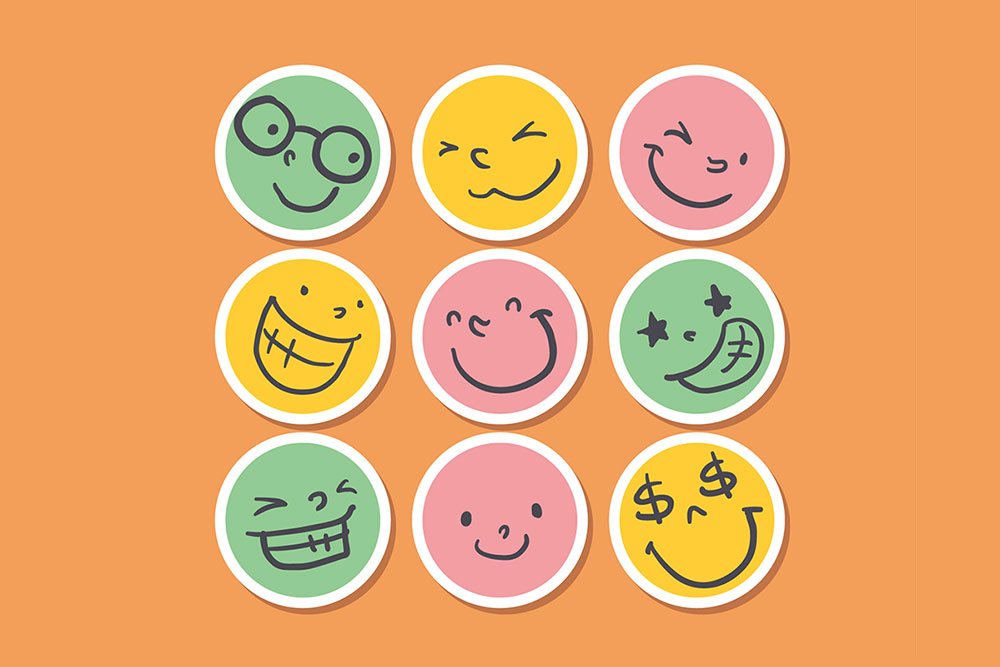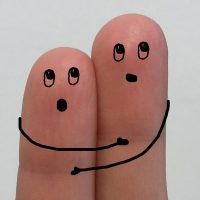Mood Disorders
Published on June 8th, 2016
Updated on January 8th, 2024

Feelings of sadness and unhappiness happen to all of us. Whether they follow a recent event or are due to life stress, it is natural to feel unhappy or sad sometimes. The death of a loved one, a sudden breakup, not being hired for a new job, or falling short of achieving a goal are all possible experiences that can cause us to feel depressed. It is also possible to feel depressed and not know why.
Likewise, feeling very excited about something in our lives, such as the birth of a child or graduating from high school, or having a lot of energy is not unusual. While experiencing fluctuations in your mood is normal, sometimes people can experience abnormal mood swings.
These mood swings can become problematic when these feelings of sadness or periods of excessive energy last for a long time or when experiencing intense mood swings. If mood swings seem to be cyclical, unpredictable, or without reason, it is possible that they are signs of a mood disorder.
Sponsored by

Choose a therapist to work with and start healing with 20% off from BetterHelp.
Click HereA person’s mood is how they usually feel over a period of time. A mood disorder can be diagnosed when a person’s mood lasts for a longer length of time or changes more often or dramatically than what is usually expected. For people suffering from mood disorders, their experience of mood swings between depression to mania can be severe and frequent enough to cause significant problems in their everyday life. A person with a mood disorder can experience symptoms of depression, mania or even both.
Mood disorders are common among adults. Sometimes they are considered unipolar depression. This means that a person experiences a depressed mood, but can also have periods of feeling level or ‘normal’. A person may also experience bipolar symptoms. This means their mood fluctuates between highs and lows. These highs and lows affect a person’s ability to function and feel well.
People who suffer from mood disorders experience at least one of the following mood states:
- Depression
- Mania
- Hypomania
Each of these states will have a significant impact on the affected person’s level of functioning. A person’s diagnosed mood disorder will depend on the frequency, severity and experience with each of the mood states.
Depression
Depression is something that affects many people. Even the most successful and seemingly happy of people may feel depressed sometimes. Depression is a powerful feeling, and it affects everyone differently. When experiencing depression, a person may have many recurring negative thoughts.
These thoughts are often challenging to overcome, and affect a person’s self-esteem. They may have negative thoughts about themselves, the world or the future. Sometimes these thoughts can be in reaction to an upsetting life experience, and sometimes they come out of nowhere.
Losing a job, relationship and money difficulties, problems in school, physical illness, and substance use are examples that can lead to depression. Prolonged sadness after the death of a loved one or after breaking up with someone can also cause depression. If you or someone you know have been experiencing any of the following symptoms for the past two weeks, depression is a possibility.
Depressive Symptoms:
- Feeling sad for most of the day almost everyday
- Lost of interest in things that you used to enjoy
- Either an increase or decrease in weight or appetite
- Not being able to sleep or sleeping too much
- Feeling agitated or sluggish
- Having no energy or always feeling fatigued
- Feeling worthless or guilty almost every day
- Not being able to think or concentrate
- Thinking about committing suicide or death in general
Mania And Hypomania
Mania is on the opposite side of the spectrum from depression. People who are experiencing mania often say that their thoughts are racing and that they have so much energy that they cannot control it. During a manic episode, people may laugh uncontrollably or at inappropriate times. Sometimes they may think that nothing can hurt them, or have grandiose thoughts and an inflated sense of self-worth.
Feelings of mania can lead to impulsive behavior. Racing thoughts and a struggle to stay grounded in the present can cause a person to act erratically and without control. In more severe cases, experiences of mania may lead to psychosis.
A person who is in a manic state may have experienced the below symptoms for at least four days:
Manic Symptoms
- Persistently elevated or irritable mood
- Inflated sense of self-esteem or importance
- Lack of sleep
- Being more talkative than usual
- Racing thoughts, also called flight of ideas
- Being easily distracted
- Setting unrealistic goals that are often not achieved
- Uninhibited indulgence in many pleasurable activities even though there is a large chance of being hurt
- Reckless or impulsive behavior
Hypomania is a less intense form of mania. People who experience hypomania are in a manic state, but the manic state is less severe than mania. People who feel hypomanic may feel more energized and motivated than usual, but they remain in control of their behavior.
They may experience flight of ideas and racing thoughts, but they are not driven to act on reckless behavior. Hypomanic states can occur after a period of depression, but do not cause a mood swing that is as intense as mania.
Sponsored by

Find an affordable therapist online with 20% off from BetterHelp.
Click Here






Leave A Reply